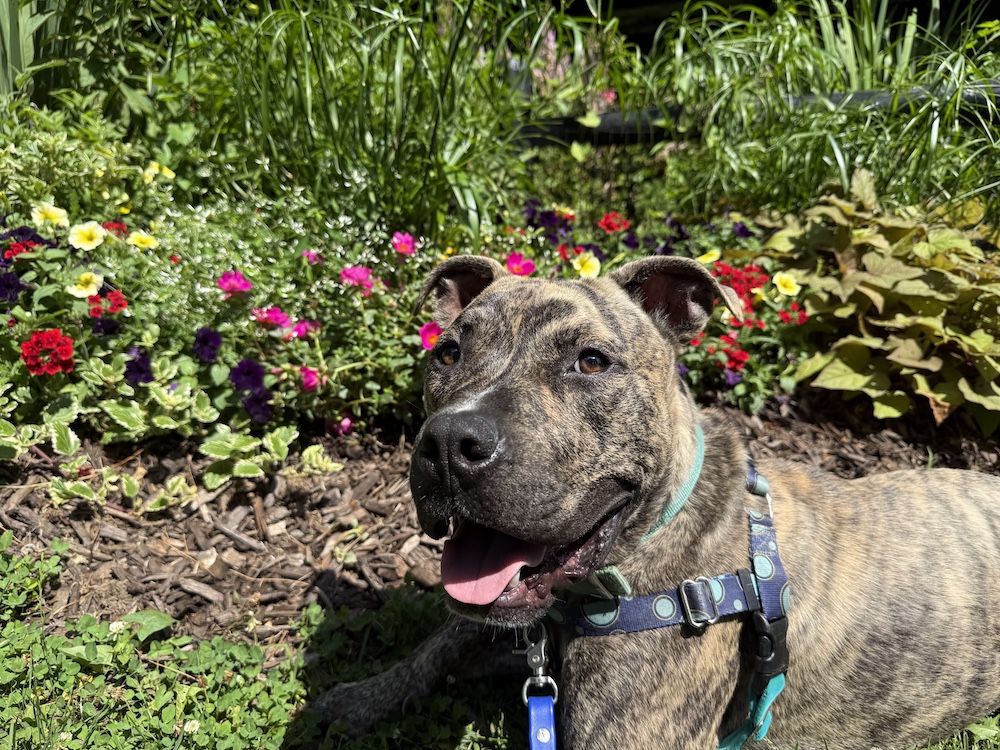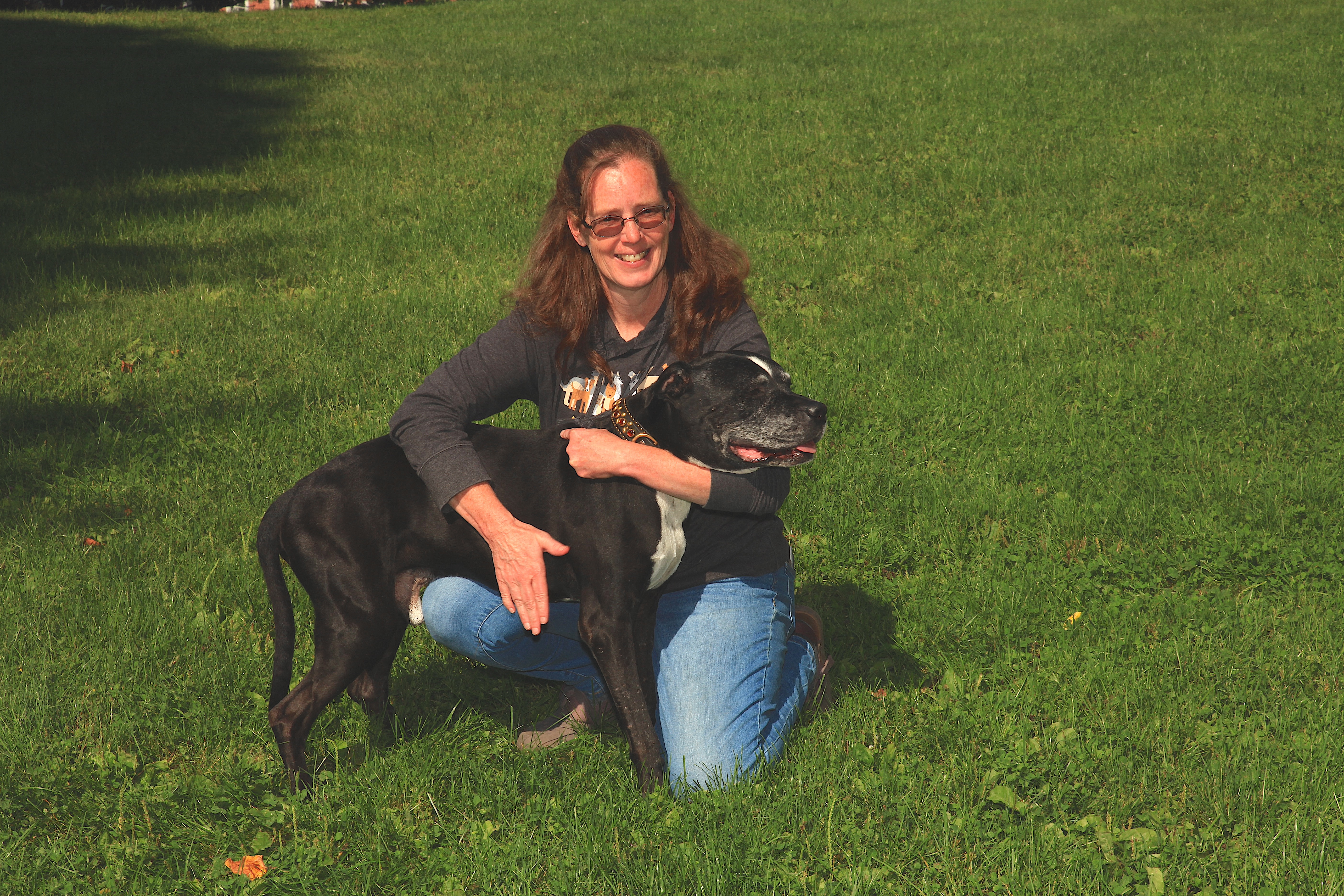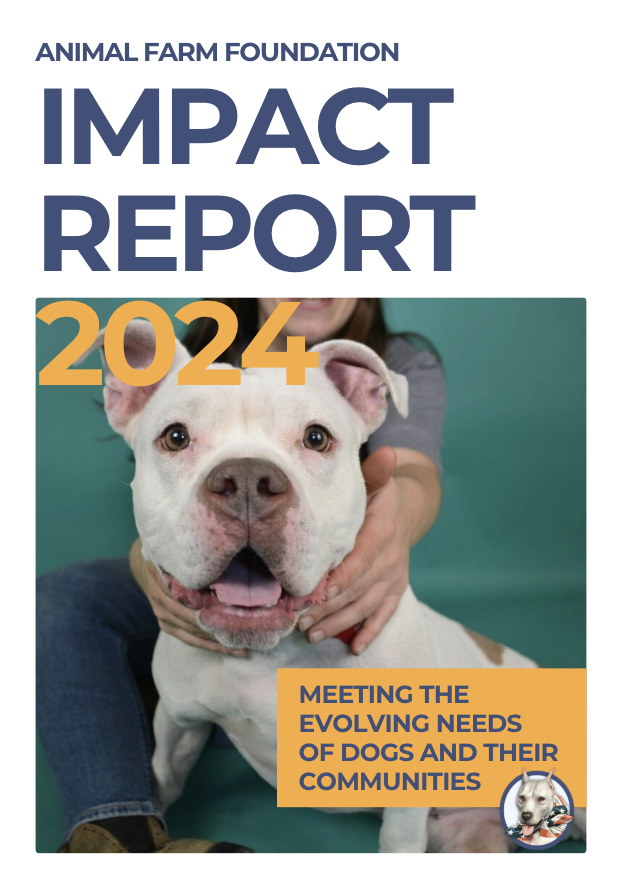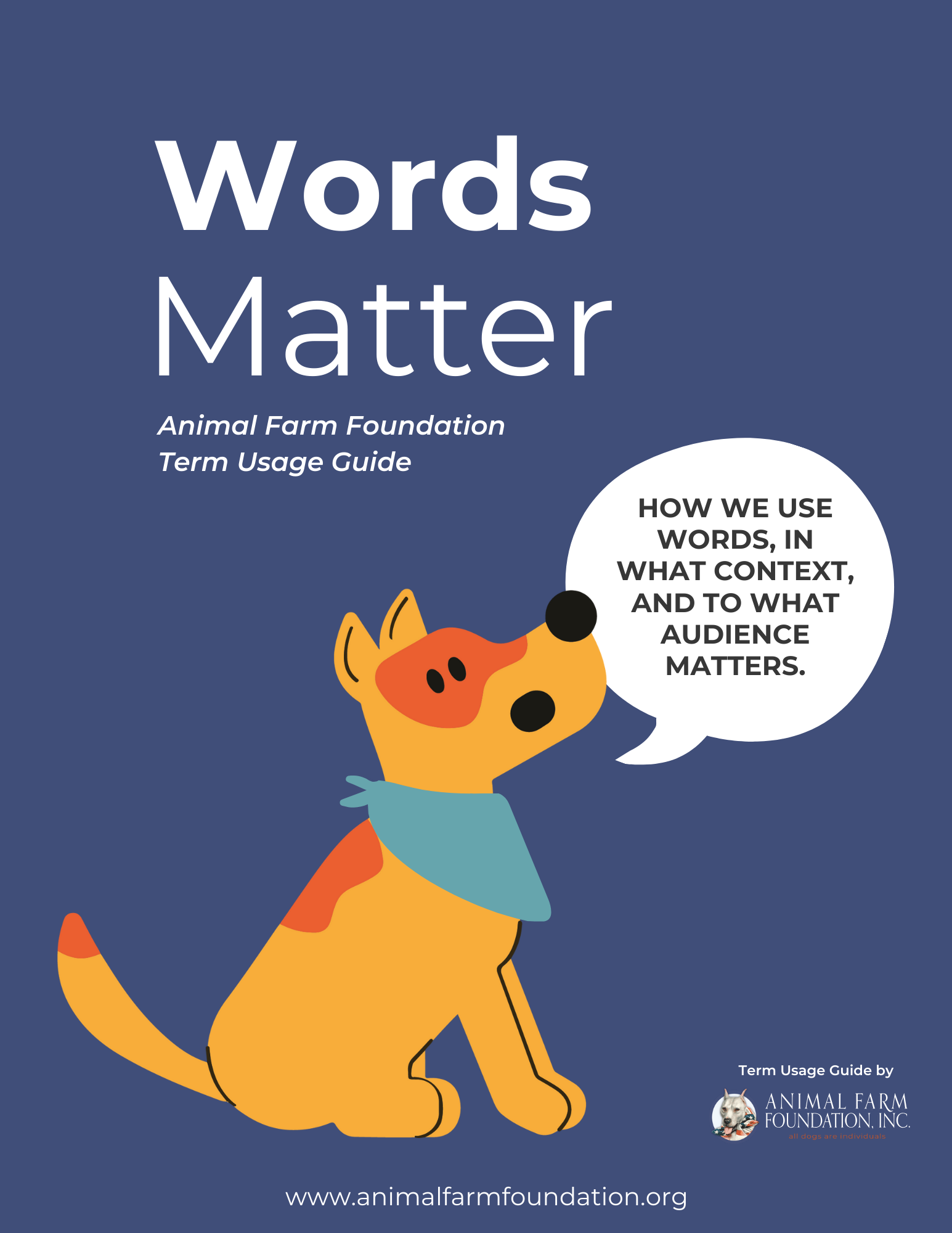Every dog is an individual, regardless of their past, and all dogs deserve to be evaluated, free of biases and assumptions based on their looks, breed, or how they were previously treated. Dogs rescued from dog fighting are victims of cruelty, but they are still individuals first and they deserve fair treatment.
The National Animal Control Association, the Humane Society of the United States, and the ASPCA have all adopted policies that give the victims of cruelty an opportunity to be evaluated as an individual, rather than as a sum of the crimes committed against them. Sadly there are still shelters that, when given custody of dogs rescued from a dog fighting operation, refuse to provide fair evaluations and sentence them to be destroyed. Additionally, if some organizations even suspect (no evidence, just speculation) that the dogs may have been victims of such cruelty, it’s an automatic death sentence.
Despite the evidence that many victims of cruelty rescued from dog fighting can go on to lead safe, normal lives, some organizations simply won’t budge on their blanket policy to destroy the victims – without an evaluation first.
Here in NY State, where Animal Farm Foundation is located, we’ve encountered this approach to victims of cruelty at a Rochester shelter called Lollypop Farm. Last year, after seven dogs were rescued from a Rochester fight bust, we were able to secure the release of one dog, Monkey Business, from Lollypop Farm. Since then, on multiple occasions, Animal Farm Foundation has offered training and support to the Director of Lollypop Farm, in an exchange for their reevaluation of their policy. Despite a seemingly willing animal care staff, shelter leadership has not taken us up on our offers of assistance.
When this article was published last week in the local news, it confirmed that nothing has changed and the dogs suspected of being victims of dog fighting remain in jeopardy at Lollypop Farm.
Upon reading the recent news story, Monkey Business’ adopter (and an AFF volunteer) was moved to write this letter:
December 8,2012
To: Adrienne McHargue, communications director for Lollypop Farm, Humane Society of Greater Rochester
Alice Calabrese, SAWA President and CEO Lollypop Farm, Humane Society of Greater Rochester
Michael Leone, Chairman of the Board of Directors of Lollypop Farm, Humane Society of Greater Rochester
Jeffrey Balckwell, Staff writer for the Democrat and Chronicle
Let me introduce myself. My name is Kathleen Corby and I adopted a dog that was seized from a dog fighting operation in Rochester who was taken to Lollypop Farm. I have been considering writing a letter to Lollypop Farm for a year now. On December 6, 2012 I came across an article on demorcratandchronicle.com titled “Battered, abandoned pit bull found in crate, taken to Lollypop“. The article’s mischaracterization of “pit bull” dogs who are victims of cruelty caught my attention.
This article is the catalyst to my addressing concerns I have regarding the negative press towards “pit bull” dogs, especially those dogs unfortunate enough to be labeled “raised as a fighting dog“. I am concerned because my dog was pulled from a dog fighting operation and as a “fighting dog” she was slated to be euthanized at Lollypop Farm. If it weren’t for the outcry of concerned employees and volunteers she would not be alive today. I hope you will listen to my concerns and in the end you will come to understand the true nature of my dog. She is an individual.
The Article: “Battered, Abandoned Pit Bull found in Crate, Taken To Lollypop”
After reading this brief account I have some concerns. The oversized photo of the battered and frightened dog appears more sensationalistic than sympathetic. Setting the photo aside, I feel few in the animal welfare community would agree with this statement. Referring to the dog in the photo it reads: “Not in her case, specifically, but if you have a dog that has been raised as a fighting dog it is very hard to place them as a companion animal because they pose a threat to the community,” said McHargue.
This generalization about fighting dogs by Lollypop Farm does little to alleviate the many misperceptions about victims of cruelty. Every single dog, regardless of assumed breed, should be evaluated individually on their own merit, because each and every dog is an individual and every circumstance is unique. Comments like the one above, intentionally or unintentionally, perpetuate the negative stereotypes and media hype regarding “pit bull” dogs. Language can be dangerous.
As the representatives of the premier shelter in Rochester and as reporters you have a responsibility to inform the public with non-biased and balanced information. Your words, messages and actions have consequences. People make assumptions from what they read and repeat your language. Law makers and politicians will create laws based upon your words and messages. Insurance companies make policy, landlords change renter agreements and communities are affected by your words, messages and actions. With all the media options available, information can travel far from your county or state. What you say and do can quickly become doctrine across the country.
The Real Story:
Dogs that come from actual fighting operations are victims of a crime. It is a well established fact that the dog fighting culture is often connected to other criminal activity. Dog fighters are frequently involved in organized crime, racketeering, drug distribution, and gangs. Dog fighting events often facilitate gambling and drug trafficking. Isn’t this a greater threat to our communities then someone like me adopting and owning a “pit bull” dog? The real issue that is never discussed is that this a societal problem not a “pit bull” dog problem.
Many “survivor dogs” who are rescued and appropriately evaluated as individuals go on to live ordinary (or extraordinary) lives, as has my little dog. I look forward to the day when I stumble across a story like the one mentioned above and the headline reads: “Police searching for Criminal who abandoned suffering dog: Lollypop Farm will fairly evaluate for adoption”
The Survivor:
So many things are interconnected when it comes to my little “pit bull” dog that I adopted from Animal Farm Foundation. Let me start at the beginning. On October 20, 2010 seven dogs were seized from a dog fighting operation described as a “Sports Club” in Rochester. All dogs were taken to Lollypop Farm for care and to be evaluated, according to the reports I have read. In the end, 6 of the 7 dogs were euthanized. Only one dog survived this ordeal. Were the other 6 dogs euthanized because “if you have a dog that has been raised as a fighting dog it is very hard to place them as a companion animal because they pose a threat to the community”? The lucky dog, named “Ellie Mae” while at Lollypop Farm, is now a member of my family and community.
Over the past year I have spoken to people at Lollypop Farm who interacted with the 7 victims. I know there was an outcry from staff and volunteers to have each of these dogs evaluated as individuals by Animal Farm Foundation, but to no avail. To assume that all dogs from dog fighting situations would act the same shows a lack of understanding of canine breeding, behavior, and genetics. Ellie Mae was the sole survivor only because certain staff members and volunteers took the time to know her, interact with her and love her for who she was. Because of the outcry of these few caring people Ellie Mae was rescued from Lollypop and delivered to Animal Farm Foundation where she was finally evaluated as an individual and not as a “fight dog”.
(It has always pained me that the 5 men involved with the “Sports Club” received no convictions and yet 6 innocent dogs were destroyed.)
Free From Her Past, Ellie Mae Gets a New Name and a Family of her Own:
I met Ellie Mae at Animal Farm Foundation in June 2011. Her new name at AFF was “Monkey Business” and it fit her to a T! My first interaction with her occurred while attending AFF’s educational internships and Monkey Business was assigned to me. I fell in love with her instantly. Monkey has endless enthusiasm and joy and she loves to be loved. Since I am also a volunteer at AFF, Monkey was one of my favorite dogs to visit. By August I was fostering her. When Monkey got out of the car and wiggled her way over to meet my husband, he instantly fell for her too. She has this effect on people. Everyone looks beyond all her scars and her injured, torn ear. Monkey Business is irresistible.
Thanks to Monkey Business I am a well recognized figure in my home town. We walk through our neighborhoods and school yards everyday and Monkey “sits/stays” at every corner until I say “Let’s go”. People who pass us beep their horns and give us a wave or a thumbs up while others shout from their yards “Hey Monkey Business”. She has a special circle of friends, mostly young boys, who spot Monkey from blocks away and at the sight of her shout out “Monkey Business!!! Monkey Business!!!”. They come running or peddling their bikes excited to see her and to give her treats. She is asked to “Sit” and is then rewarded with palmfuls of treats. Monkey is wiggly from nose to tail at the sight of her pals and she licks and licks their small hands. Needless to say Monkey is loved by many. Monkey has connected me to my community and for that I am grateful.
Animal Farm Foundation offers obedience training to all their alumni and Monkey has been a happy participant in these classes. This October she earned her C.L.A.S.S. BA degree. Since children love Monkey, I hope some day she will become a therapy dog who will sit with children while they read aloud to her. For now, I am content just to have Monkey be Monkey.
For over a year I have wanted to ask those at Lollypop Farm, who were considering her for euthanasia, if they had interacted with Monkey Business. If they had, they would have seen what everyone sees: a happy, well-adjusted, sweet, goofy, silly girl who loves everybody.
After reading my letter, my wish is that you will reassess your policies. At the very least I hope you will understand that you misjudged Monkey’s character. Will you allow this new dog to be fully and fairly evaluated as an individual? I hope Lollypop Farm, the Rochester community, and the media can learn from what I consider to be a past mistake.
I know I need to follow Monkey’s lead and let it go. She does not carry any of her past with her. Monkey is all about living in the moment. So perhaps writing and sending this letter will allow me to do the same.
Please take a good look at the photos of Monkey Business. Thank you for your time and if you ever want to meet Monkey Business or if you would like to write a follow-up article on her, I would welcome the opportunity to start a conversation.
 Sincerely,
Sincerely,
Kathleen Corby
Thank you for speaking so eloquently on behalf of the dogs Kathleen.
In conclusion, we wish to be clear about the fair treatment of victims of cruelty:
We do a disservice when we judge dogs based solely on their past or what we speculate to be their past. Dogs who are victims of any sort of cruelty – and dog fighting is cruelty – deserve our compassion and a fair evaluation. To assume that the abuse they have survived makes ALL victims of cruelty unsafe for adoption robs them of a fair chance at life, like the one Monkey Business is enjoying today.
Humane animal welfare organizations must cease to sentence dogs to death based on an assumption of how they will act in the future, because of what they may have survived in their past. It is our ethical obligation to get to know every dog as an individual. When organizations refuse to evaluate dogs like Monkey Business fairly, they are quite simply, one more spoke in the wheel of animal abuse.
You can see Monkey Business in action here:
[vimeo http://www.vimeo.com/31555194 w=500&h=375]
Monkey Business Goes HOME! from Animal Farm Foundation on Vimeo.









